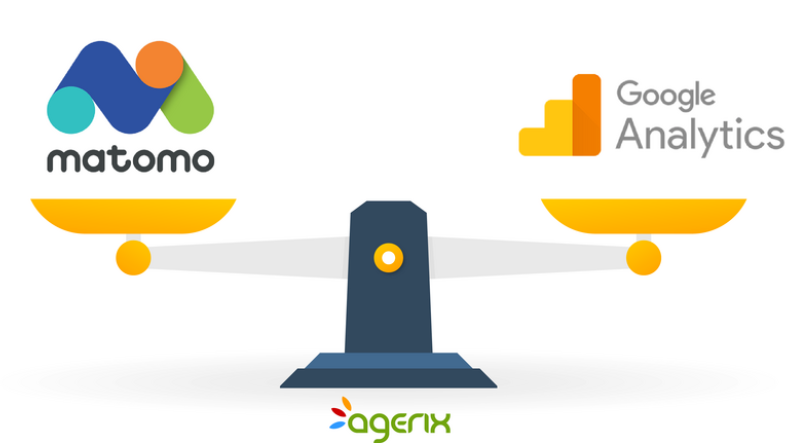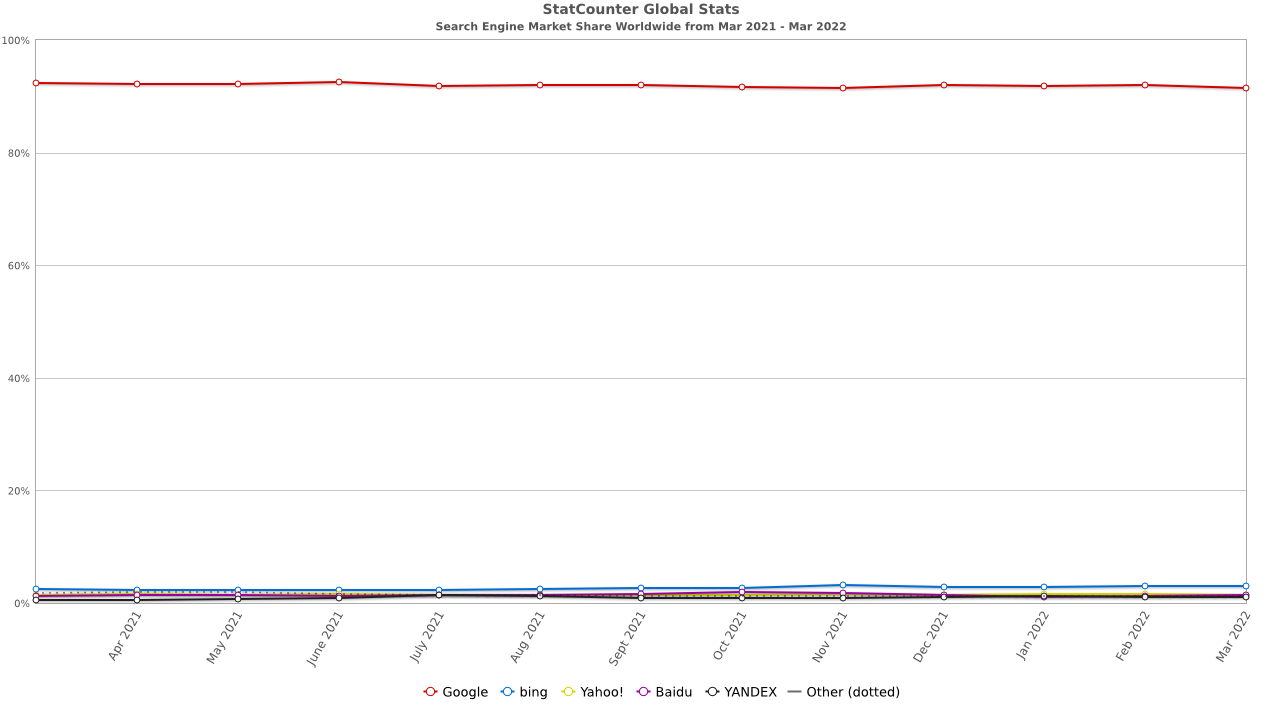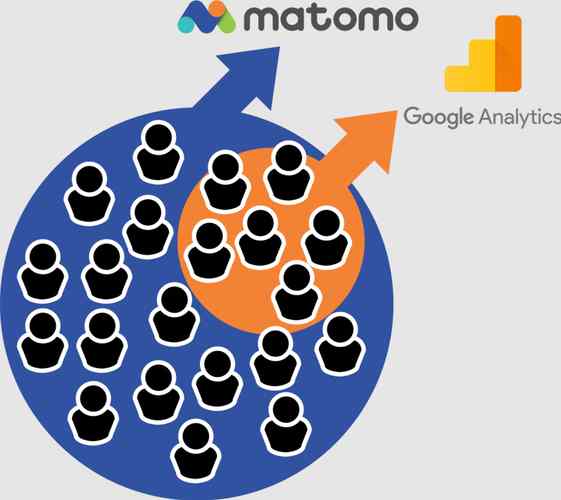Why should you consider replacing Google Analytics with Matomo?

Published on: 15 April 2022 - Updated on: 4 April 2024 - Read 650 times - Reading time: 6 minutes
Since the beginning of the year, Google Analytics has been the subject of controversy and prohibition. Matomo appears to be one of the most popular solutions to replace Google Analytics. Detailed explanations on why our agency made this choice.
In January 2022, the Austrian authority considered the use of Google Analytics to be a violation of the GDPR (General Data Protection Regulation).
This decision came after several complaints filed by the Austrian NGO NOYB (None Of Your Business), highlighting the non-compliance with the CJEU's 'Schrems II' decision (Court of Justice of the European Union) dating from 2020. As a reminder, this decision invalidates the data transfer regime between the EU and the US.
That same month, the European Data Protection Supervisor (EDPS) concluded that the European Parliament had not complied with the legislation by allowing cookies from Google Analytics and Stripe. It had not taken the necessary measures to ensure that data transfers to the United States were in accordance with the Schrems II decision.
On February 10, 2022, the CNIL published an article that shook the French web: the CNIL ordered a website manager to remove Google Analytics from its site for non-compliance with Article 44 and subsequent of the GDPR. In summary: using Google Analytics is prohibited.
In the weeks that followed, several articles commented on the event and provided clarifications (or not) on a rather complex situation. Opinions were divided between the "We told you so" and the "It's not a big deal, Google will find a solution".
And it's true that Google reacted quickly since on March 18, 2022, the Mountain View firm announced the abandonment of its Universal Analytics web traffic analysis tool in favor of a new version, named Google Analytics 4 (GA4) and already available. This announcement was a bombshell for SEO professionals since GA4 is a total change from previous versions (in technology, interface, philosophy, and even jargon), and also because data transition is not currently fully assured, Google currently offering no dedicated tool.
Below is a video from the very serious site Neper, the agency specialized in Search Marketing and SEO
 PLG_CONTENT_TWOCLICKYOUTUBEVIDEOS_PRIVACYHINTPLG_CONTENT_TWOCLICKYOUTUBEVIDEOS_VIDEOLINK
PLG_CONTENT_TWOCLICKYOUTUBEVIDEOS_PRIVACYHINTPLG_CONTENT_TWOCLICKYOUTUBEVIDEOS_VIDEOLINK
Why you should consider using alternatives to Google Analytics
You might be wondering why you should consider using an alternative to Google Analytics. There are three main reasons: ease of use, privacy protection, and ethics.
1. Ease of use
Google Analytics is a powerful analysis tool, but it can also be complicated. If you're not technically inclined, it can be very difficult to know how to use Google Analytics. Of course, if you want to learn how to navigate Google Analytics, there are plenty of resources that will help you do so. But, as a business owner, you have to ask yourself if spending weeks of your life learning Google Analytics is the best use of your time. You may want to consider a simpler analysis platform, built with you in mind.
2. Privacy
Google is mostly known for its "free" products: Google Search Console, Gmail, Chrome, Google Docs, Google Analytics, etc. But, let's not forget, Google is not a nonprofit organization. They do not give away these products for free out of the goodness of their heart. According to Statista, in 2021, the company's revenue exceeded 256 billion dollars:
| 2021 | |
| • 256.74 | |
Where does all this money come from? The largest part comes from advertising. And where do they get the information that helps their advertisers target their ideal clientele? The answer is: you.
Google uses the data you provide to personalize the ads they show you, which increases the likelihood that you'll click on them. At first glance, this doesn't seem so bad. If they're going to show you ads anyway, they might as well make them relevant, right? However, the more you think about it, the more unsettling it all becomes because all this data is from your visitors and many studies show that the public is increasingly sensitive to the respect of personal data.
Don't forget that if you use Google Analytics, you must have a privacy policy, which we will talk more about later in this article.
3. Ethics
The concern about the power that Google has gained over the years is growing. In fact, Google owns about 90% of the search market:
 The market share of search engines worldwide in 2022
The market share of search engines worldwide in 2022
This means that its search algorithm somewhat shapes the public's perception of the world. Can you imagine the influence Google has because of this? And the responsibility that every site publisher has through its use of Google products? So, if you don't like the way Google operates as a search engine, you should know that there are many alternative search engines you could use.
What are the alternatives to Google Analytics?
Fortunately, there are many, here are the most famous: StatCounter, Adobe Analytics, Gauges, Simple Analytics, Fathom Analytics, Clicky, Matomo, Woopra, Heap, GoSquared, Hitsteps, Kissmetrics, Plausible
We're not here to describe each of them to you, we've provided the links if you want to learn more. Take a look and make your own choice.
As for us, we've spent a lot of time doing our comparisons, and the two that stood out were Plausible and Matomo, both being Open Source solutions, which suits our research office very well, and very comprehensive.
Both solutions are also fully compliant with privacy regulations since no cookies are used and no personal data is collected. This therefore meets our "Specifications".
The analysis scripts deployed are also very light, that of Plausible for example weighs only 1.4 Ko, making it 33 times smaller than Google Analytics' global site tag. Enough to significantly improve your SEO performance and your scores on Google's Web Vitals.
Why choose Matomo?
The argument that tipped the scales towards Matomo is that it does not use data sampling. In simple terms, data sampling means that you take a sample of the data, analyze it, and then extrapolate your results to the rest of the data. Here's how Google explains data sampling:
For example, if you wanted to estimate the number of trees in a 100-acre area where the distribution of trees is fairly uniform, you could count the number of trees in 1 acre and multiply by 100, or count the trees in half an acre and multiply by 200 to get an accurate representation of the entire 100 acres.
While the use of data sampling beyond a certain traffic threshold allows Google to save a lot of money, it's not exactly ideal if you want accurate and granular-level data.
Matomo does not use this statistical analysis method to reduce its costs. They actually analyze all the data, so you can be sure that what you see corresponds to reality, regardless of the volume of data generated by your site.
This fundamental difference definitely swayed our choice towards Matomo.
 sampling viewed by Google or Matomo
sampling viewed by Google or Matomo
Other key points about Matomo:
- Matomo has no storage and data collection limit if you host Matomo instances on your own web server or hard drive.
- No limit on the number of websites you can track.
- No limit on the number of user accounts, scheduled reports, and the amount of data you can export.
- There is no limit to the number of goals, transactions, and page views you can track.
- Matomo has no data sampling issues. You get 100% unsampled data.
- You have complete ownership and control of your analytics data. No one else can access your data, even anonymously. This is not the case with Google Analytics. Moreover, if you violate Google TOS, Google can terminate your GA account and you can lose all your data overnight.
- In Matomo, you can configure privacy settings according to your company's privacy policy and the data protection laws of your country. This means you are not bound by Matomo's policy and terms of use regarding privacy and data protection. You can choose to track personally identifiable information (PII) such as visitors' names, email addresses, IP addresses, etc., in your Matomo reports. Google does not allow tracking of PII.
- No consent screen. We now know that a large part of the public will not accept consent screens for tracking and cookies, meaning you could be making poor business decisions based on inaccurate information. Matomo gives you the advantage of continuing tracking even if the consent cookie has been refused. This way, you have more detailed data on those who give their consent, but you don't miss out on data about visitors who have rejected the use of cookies.
French sources
- Adieu GA3 et Universal Analytics ! :https://www.neper.fr/2022/03/24/adieu-ga3-et-universal-analytics/
- 13 Meilleures alternatives à Google Analytics pour une collecte de données puissante, Matteo Duò, 2 juillet 2021 : https://kinsta.com/fr/blog/alternatives-google-analytics/
- 22 moteurs de recherche alternatifs à utiliser en 2022 Matteo Duò, 21 janvier 2022 : https://kinsta.com/fr/blog/moteurs-recherche-alternatifs/
- Pas de limitation pour les données avec Matomo https://fr.matomo.org/no-data-limitations-with-matomo/
- L'analyse complète. 100 % à vous. https://fr.matomo.org/feature-overview/
- Profitez du non-échantillonnage des données avec Matomo https://fr.matomo.org/no-data-sampling/
- Suivi des données personnelles ou IIP avec Matomo https://fr.matomo.org/tracking-personal-data-with-matomo/
- How to respect privacy and get rid of cookie consent banners https://fr.matomo.org/cookie-consent-banners/
English sources
- Use of Google Analytics violates EU law, Austrian authority rules, Oliver Noyan : https://www.euractiv.com/section/politics/short_news/use-of-google-analytics-violates-eu-law-austrian-authority-rules/
- Privacy Shield binned after EU court rules transatlantic data protection arrangements 'inadequate', Gareth Corfield : https://www.theregister.com/2020/07/16/privacy_shield_struck_down/
- Decision of the European Data Protection Supervisor in complaint case 2020-1013 submitted by Members of the Parliament against the European Parliament : https://noyb.eu/sites/default/files/2022-01/Case%202020-1013%20-%20EDPS%20Decision_bk.pdf
- Regulation (EU) 2016/679 of the european Parliament of the council, Article 44, General principle for transfers : https://eur-lex.europa.eu/legal-content/EN/TXT/HTML/?uri=CELEX%3A32016R0679&from=FR#d1e4227-1-1
- Use of Google Analytics and data transfers to the United States: the CNIL orders a website manager/operator to comply, 10 février 2022 : https://www.cnil.fr/en/use-google-analytics-and-data-transfers-united-states-cnil-orders-website-manageroperator-comply
- Prepare for the future with Google Analytics 4, Russell Ketchum : https://blog.google/products/marketingplatform/analytics/prepare-for-future-with-google-analytics-4/
- Annual revenue of Google from 2002 to 2021 by Joseph Johnson, Feb 9, 2022 https://www.statista.com/statistics/266206/googles-annual-global-revenue/
- Part de marché des moteurs de recherche dans le monde https://gs.statcounter.com/search-engine-market-share
Article updated on 04 April 2024
If you enjoyed this article, you're sure to enjoy this selection!


